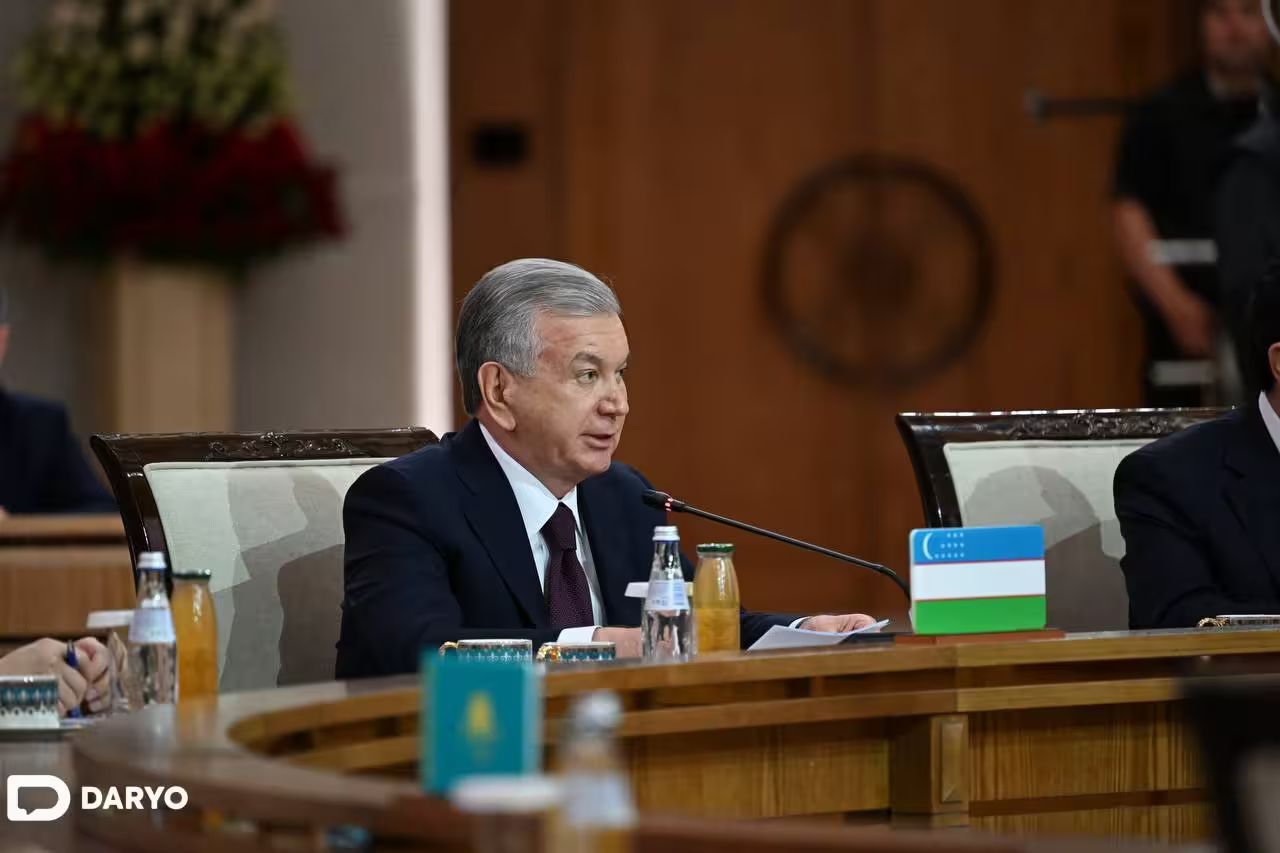Uzbek President Shavkat Mirziyoyev participated in the Central Asia – Italy summit in Astana on May 30th, the president’s press service reports.
The summit, chaired by President Kassym-Jomart Tokayev of Kazakhstan, also included Italian Prime Minister Giorgia Meloni, Kyrgyz President Sadyr Japarov, Tajik President Emomali Rahmon, and Turkmen President Serdar Berdimuhamedov.
Discussions focused on expanding multifaceted cooperation between Central Asian nations and Italy. Particular emphasis was placed on investment and technology partnerships, green economy initiatives, and educational and cultural exchange programs.
President Mirziyoyev highlighted the summit’s alignment with the strategic partnership agreements between Central Asia and Europe, reached at the Samarkand summit in April. He emphasized a commitment to productive collaboration, leveraging the technological, industrial, and intellectual potential of all participating countries.
The importance of this multilateral dialogue with Italy was underscored, given current global and regional political trends, increasing shared security challenges, and progress toward common goals.
The long history of trade and cultural ties between the region and Italy provides a strong foundation for comprehensive partnership in this new phase.
President Mirziyoyev outlined Uzbekistan’s vision for priorities within the Central Asia – Italy framework. This included maintaining regular contact between foreign ministries to coordinate approaches on key international issues, and establishing mechanisms for multilateral partnership and information sharing among security services to combat terrorism, extremism, radicalism, drug trafficking, and illegal migration.
In the economic sphere, he noted the threefold increase in trade and investment between Uzbekistan and Italy in recent years, along with the successful implementation of technological cooperation projects with leading Italian companies.
Given Italy’s strong business presence in Uzbekistan’s innovative development, he proposed establishing a permanent business dialogue platform – the Central Asia – Italy Business Club – under the auspices of the countries’ chambers of commerce. Annual meetings with broad business participation would be held in the capitals of the Central Asian nations and Italy.
Furthermore, President Mirziyoyev advocated for a comprehensive multilateral program for industrial and technological cooperation, fostering technology transfer, advanced knowledge sharing, best practice implementation, and the creation of high-tech industries.
He suggested prioritizing deep processing of mineral and agricultural resources; manufacturing modern equipment for the electrical, chemical, textile, leather, food processing, and other industries; localizing component production and industrial goods; and establishing design centers with leading Italian brands.
To facilitate regional projects, he announced the creation of a special industrial park in the Tashkent region, managed by a European operator. He also highlighted the importance of attracting Italian agencies SACE and SIMEST, and joint investment funds, to support cooperative projects.
Praising fruitful cooperation on green transformation, President Mirziyoyev called for a full-scale partnership through a multilateral platform to support national decarbonization programs. This would involve renewable energy projects, including green energy exports to the EU; energy efficiency audits; modernization of water infrastructure; and development of hydrogen technologies, leveraging Italy’s leading manufacturers and engineering companies.
Acknowledging the successful operation of Turin Polytechnic University and University of Pisa branches in Tashkent, he welcomed interest from other leading Italian universities. He proposed establishing a Central Asia – Italy Scientific and Educational Consortium to conduct and fund research, academic exchange programs, and training in engineering, design, water conservation, and biotechnology.
He also expressed interest in launching a tourism alliance to foster partnerships between leading operators and develop joint tourism products. The significant interest shown by the Italian public in exhibitions and cultural events held in Rome and Florence was noted with satisfaction.
To build on this, he proposed a youth forum on creative economy and cultural exchange between the region and Italy in Khiva next year.
The summit concluded with addresses from the Central Asian leaders and the Italian Prime Minister, and the adoption of a Joint Statement.

